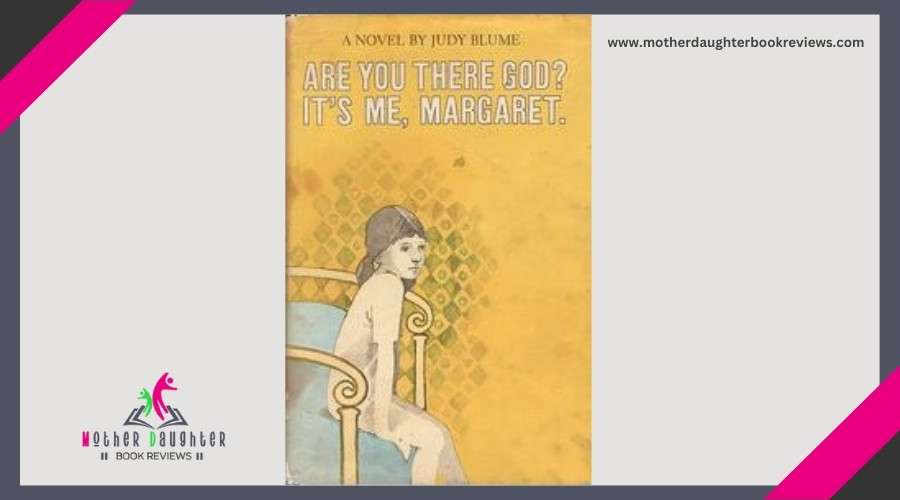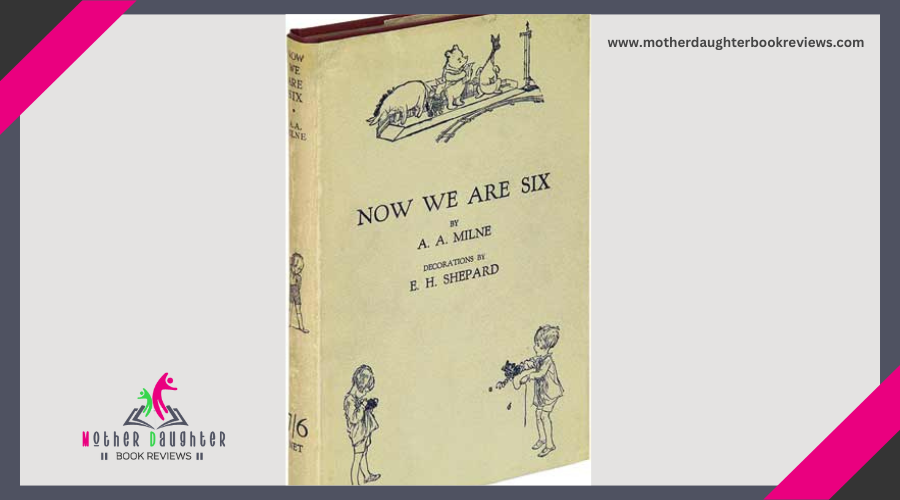A Story of Growing Up and Self-Discovery in Are You There God? It's Me, Margaret

In "Are You There God? It's Me, Margaret," you follow Margaret's expedition through the ups and downs of growing up. Moving to a new town sparks her curiosity and self-realization. She navigates the awkwardness of puberty and questions her spiritual identity amid parental expectations. Struggles with cultural heritage, peer pressure, and evolving friendships shape her quest for acceptance. Margaret's candid conversations with God reveal her innermost fears and hopes.
Margaret's Journey Begins
Margaret's expedition begins with a move to a new town, thrusting her into a whirlwind of change and self-realization. As you follow her odyssey, you'll see how this move ignites her curiosity and pushes her to investigate new facets of herself. Margaret's aspirations become evident as she navigates the unknown, trying to understand her place in a world that's constantly shifting.
You can feel the pulse of her childhood innocence as she adapts to her new environment. She's got big dreams but also faces the typical anxieties of a young girl trying to fit in. Her move forces her to confront the complexities of growing up, challenging her to balance her youthful naivety with the desire to grow and learn.
In this new town, Margaret finds that her aspirations aren't just about fitting in with new friends, but also about understanding herself on a deeper level. Each new experience, regardless of it being making friends or facing new challenges, shapes her odyssey. Through her eyes, you witness a delicate dance between holding onto childhood innocence and stepping boldly into the future.
Navigating Puberty
You see Margaret grappling with body changes and the inevitable peer pressure that comes with them. She's anxious about menstruation and isn't sure how to handle crush confusion. It's a whirlwind of emotions that leaves her questioning her body image and struggling to meet social expectations.
To make matters more complex, self-acceptance doesn't come easily. Margaret is surrounded by friends who seem to be maturing at different rates, which heightens her insecurity. She wonders if she's normal and if others are experiencing the same worries. This period of uncertainty is a critical time for confidence building. Margaret learns that everyone's path is unique and that there's no one right way to grow up.
Through it all, she begins to understand that accepting herself is a key part of maneuvering through puberty. Despite the pressure to fit in and look a certain way, Margaret's experience becomes a reflection of the importance of self-acceptance and the ability to rise above the confusion and anxiety that often come with growing up.
The Search for Faith
Steering through the murky waters of faith, Margaret isn't just searching for spiritual answers but also seeking a sense of belonging and identity. Her expedition is laden with personal doubts, making her spiritual exploration both challenging and enlightening. As you follow Margaret's quest, you witness her grappling with the expectations from both sides of her family—one Christian, the other Jewish. This tug-of-war mirrors the broader struggle many face when trying to define their own beliefs.
You see Margaret attending different religious services, hoping to find where she fits in. But it's not just about attending; it's about feeling a connection, a sense of peace that connects with her inner self. These experiences are crucial, as they reflect her attempt to carve out a personal space in a world filled with predefined notions of faith.

Friendship Dynamics
Steering her spiritual path, Margaret also faces the intricate web of friendship dynamics that shaped her adolescence. You see her navigate friendship conflicts as she tries to belong to a group, often encountering peer pressure that challenges her sense of self. Loyalty struggles arise, testing her bonds and making her question who her true friends are. These moments aren't just hurdles; they're vital to her growth.
As Margaret's friendships evolve, she learns about the importance of support systems. Friends who genuinely care provide a safety net during tumultuous times. However, communication barriers frequently complicate these relationships. Misunderstandings and unspoken feelings can create rifts that seem insurmountable. You'll notice that Margaret's ability to overcome these barriers is significant for maintaining her friendships.
Shared experiences, both joyful and painful, play a significant role in strengthening these bonds. Yet, trust issues often lurk beneath the surface, challenging the stability of even the closest friendships. Margaret's path is a reflection of how important trust is and how easily it can be shaken. Through these experiences, you gain insight into the complex yet rewarding nature of adolescent friendships.
Family Relationships
Family plays an essential role in Margaret's quest for self-discovery. You see how her parents' differing religious backgrounds create tension and shape her understanding of faith and identity. Parental expectations weigh heavily on Margaret as she navigates adolescence. Her mother, Barbara, expects her to adopt Christian traditions, while her father, Herb, leans towards Judaism. This tug-of-war places Margaret in a challenging position, forcing her to question what she truly believes.
Sibling dynamics also play a part in Margaret's expedition. Although an only child, the relationships she observes in her extended family and friends influence her perception of family bonds. She watches how siblings interact, learning from their conflicts and camaraderie. These observations help her form her own ideas about what family should be.
Identity and Belonging
In Margaret's expedition, questions of identity and belonging are at the forefront of her adolescent experience. As you navigate her path, you see her grappling with her cultural identity. Margaret's mixed heritage—Jewish and Christian—leaves her feeling torn between two worlds. She struggles to fit in, often feeling like an outsider, unsure of where she truly belongs.
Margaret's quest for identity isn't just about religion; it's also about understanding herself. Her personal growth is evident as she investigates what makes her unique. You notice her questioning societal norms and expectations, regardless of whether it's about body image, friendships, or family dynamics. She learns to trust her instincts and begins to form her own identity, separate from the labels others try to impose on her.
The theme of belonging strikes a chord as Margaret seeks acceptance among her peers. The anxiety of fitting in, the pressure to conform, and the desire for genuine connections all shape her path. Through her experiences, you witness the universal struggle of adolescence—finding out who you are and where you belong. Margaret's journey speaks to anyone who's ever felt caught between different identities, aiming for personal growth and understanding.
The Role of Religion
Religion plays an essential role in Margaret's expedition, shaping her understanding of herself and the world around her. As she sets out on her exploration of faith, Margaret finds herself caught between her parents' differing beliefs. This internal tug-of-war propels her into spiritual questioning, pushing her to seek a personal connection with God. You can see Margaret's struggle to find her spiritual identity, which is a central theme in her story.
Throughout the book, Margaret's exploration of faith isn't just about choosing between her parents' beliefs; it's about carving out her own path. She attends different places of worship, hoping to find where she belongs spiritually. This quest is more than just a search for religion; it's a search for self.
Margaret's dialogues with God serve as a private space for her to express her fears, hopes, and questions. These moments show her vulnerability and genuine desire for understanding. Her exploration is a reminder of how significant spiritual questioning can be during one's formative years.
Lessons Learned
Margaret's expedition in "Are You There God? It's Me, Margaret" offers a wealth of lessons you can take to heart, especially about traversing adolescent challenges. As you follow her voyage, you see how she grapples with the uncertain terrain of puberty, faith, and friendships. Margaret's experiences highlight the importance of developing self-acceptance strategies. Rather than comparing yourself to others, you learn to welcome your unique growth pace and individuality.
One of the key lessons is how Margaret tackles the awkwardness of puberty. You see her openly question her body's changes and seek comfort in her friends, finding reassurance in shared experiences. This teaches you that discussing your concerns with trusted individuals can alleviate anxiety.
The novel also investigates the complexity of religious identity, showing how Margaret's quest for spiritual understanding is part of her broader self-discovery. You learn that it's okay to question and examine different beliefs to find what connects with you.
Additionally, Margaret's friendships demonstrate the value of honest communication and mutual support. As you face adolescent challenges, these lessons remind you that self-acceptance and open dialogue can guide you through the tumultuous passage of growing up.
Enduring Impact
Few novels leave an indelible mark on readers like "Are You There God? It's Me, Margaret." This book's enduring impact stems from its profound cultural relevance and emotional resonance. When you read it, you're not just following Margaret's expedition; you're stepping into the shoes of countless adolescents grappling with the same universal questions about identity, faith, and growing up.
The cultural relevance of Judy Blume's novel can't be overstated. It broke barriers by addressing taboo topics like puberty and menstruation, which were rarely discussed openly when the book was initially published. By doing so, it provided a necessary platform for young readers to feel seen and understood.
Wrapping Up
Are You There, God? It's Me, Margaret" is a heartfelt exploration of growing up, filled with the challenges of adolescence, questions of faith, and the complexities of friendship. Margaret's journey resonates deeply with anyone navigating the uncertainty of self-discovery. Her candid conversations with God, her evolving friendships, and her search for identity offer timeless lessons in self-acceptance and understanding. As you follow her experiences, you're reminded of the importance of embracing personal growth and finding your path, even amidst the pressures and expectations of others.




